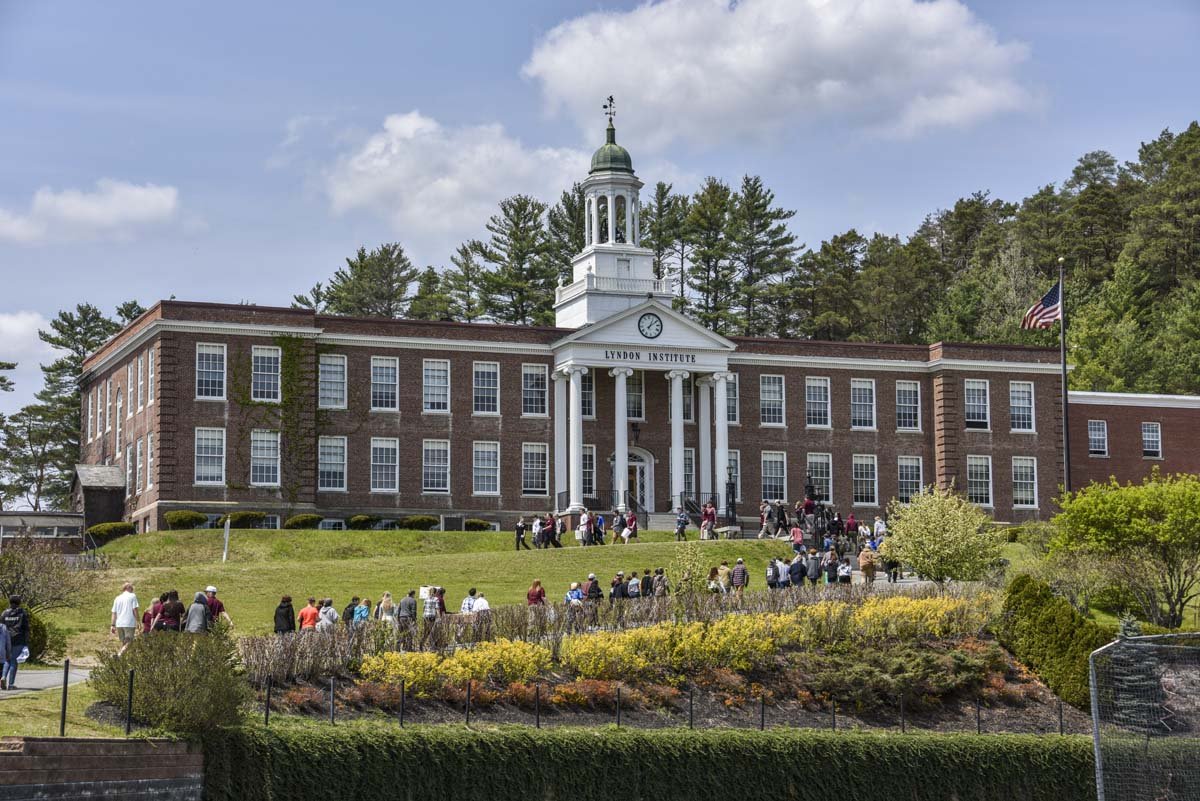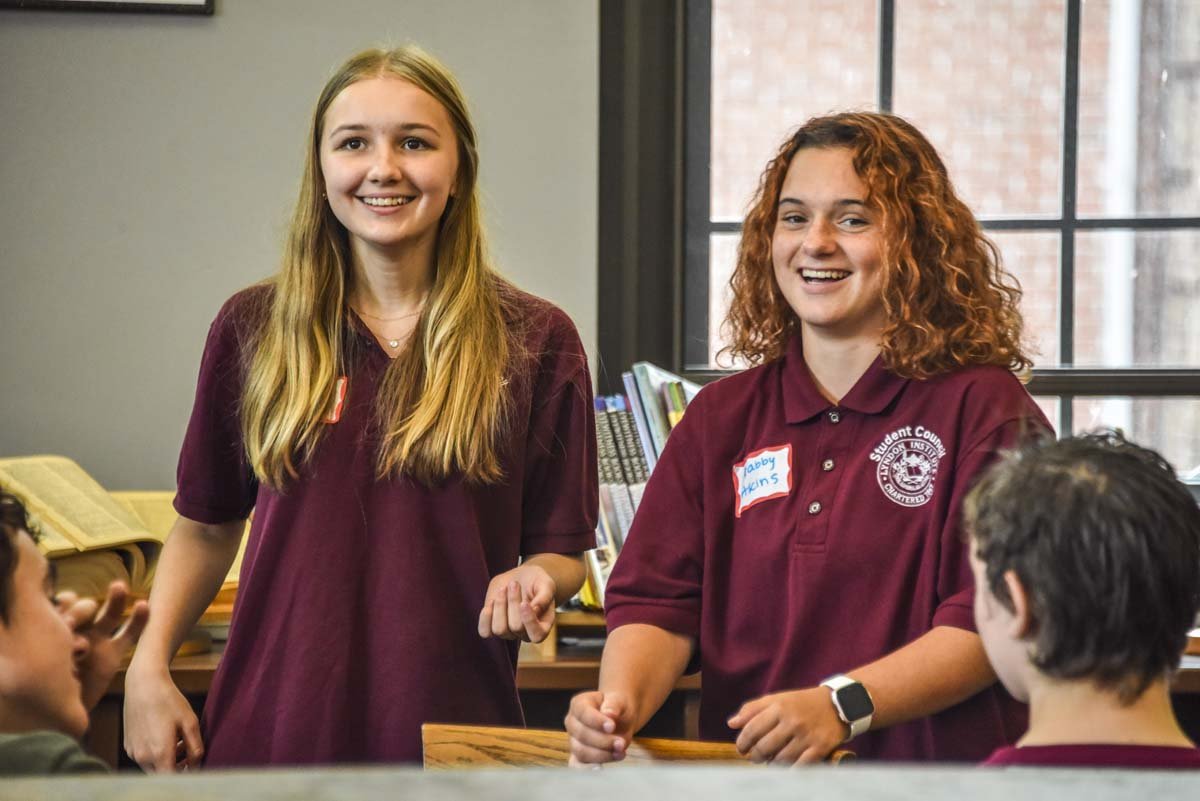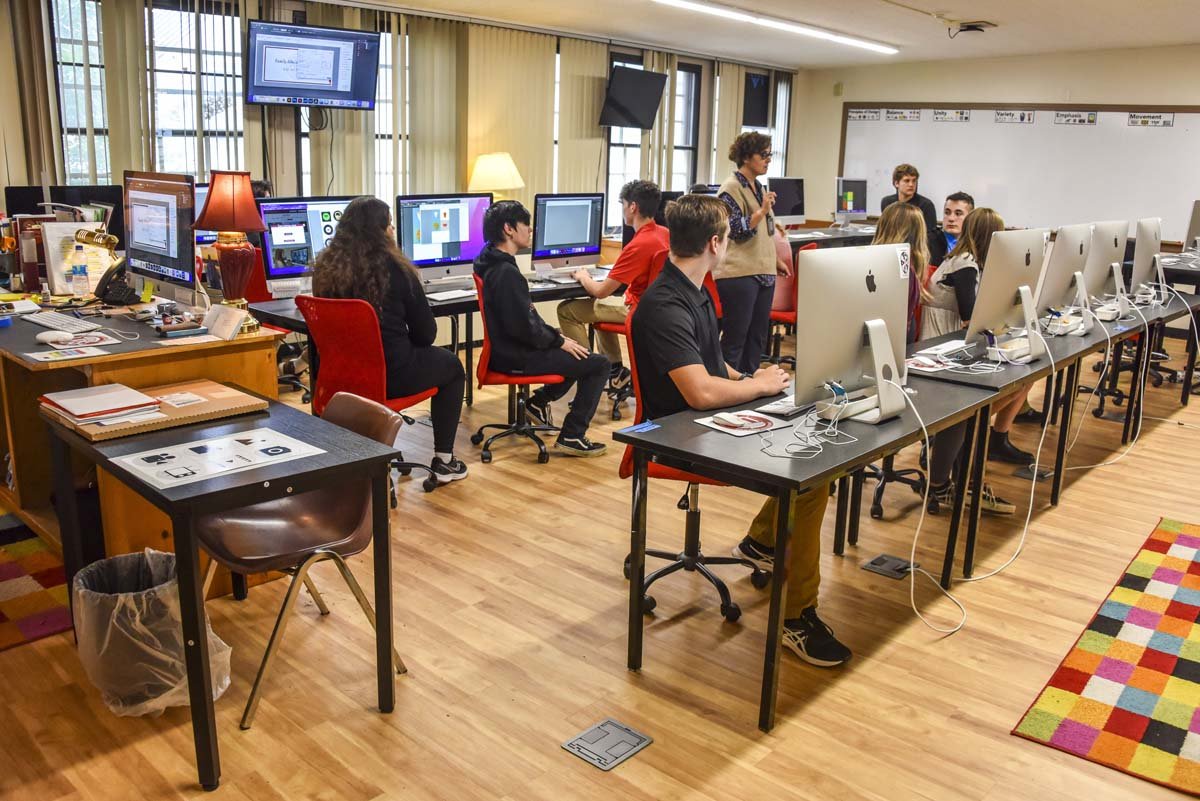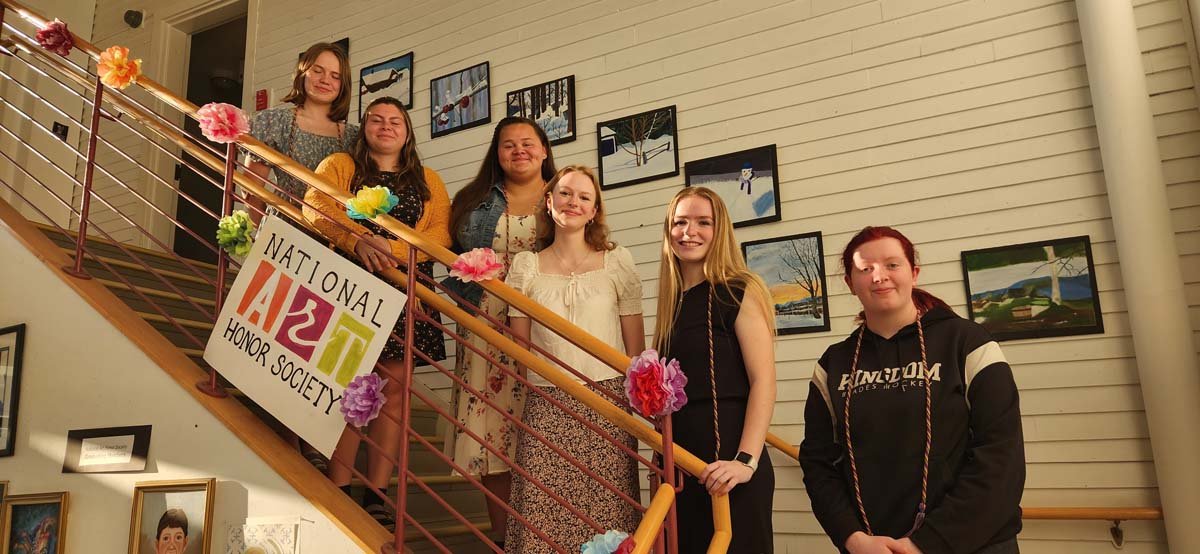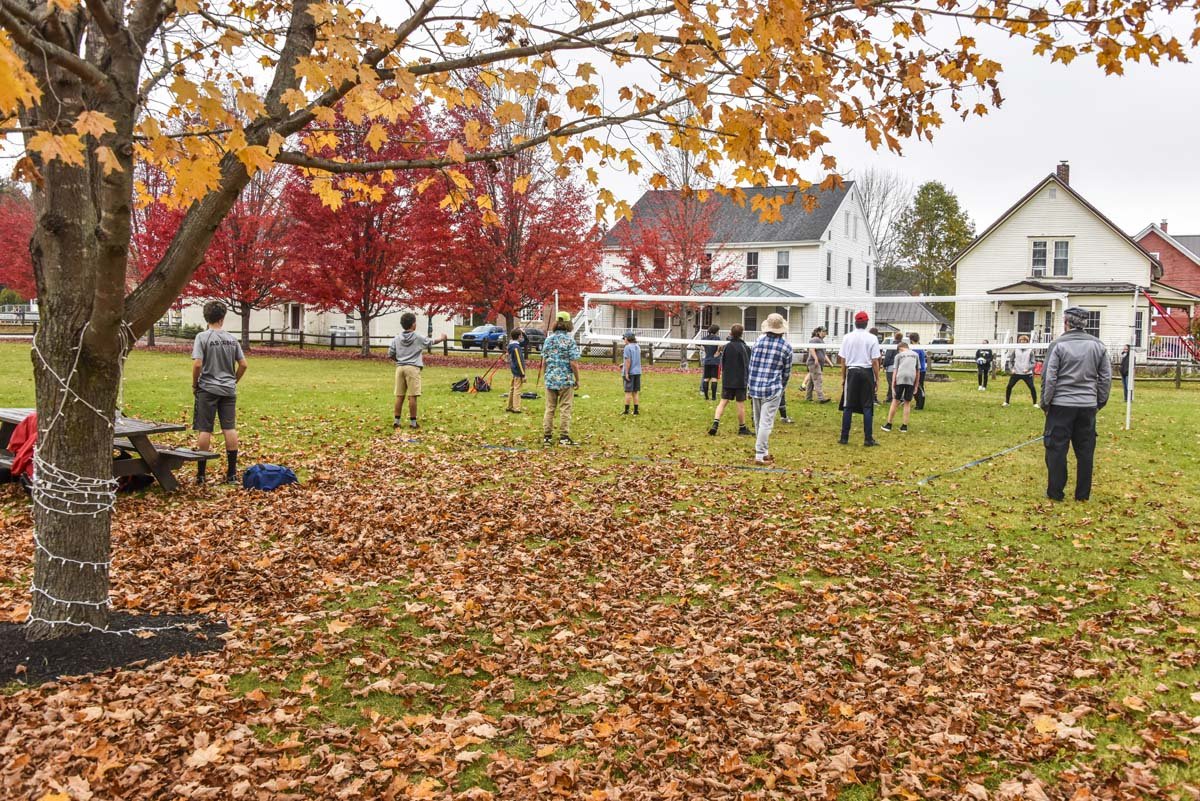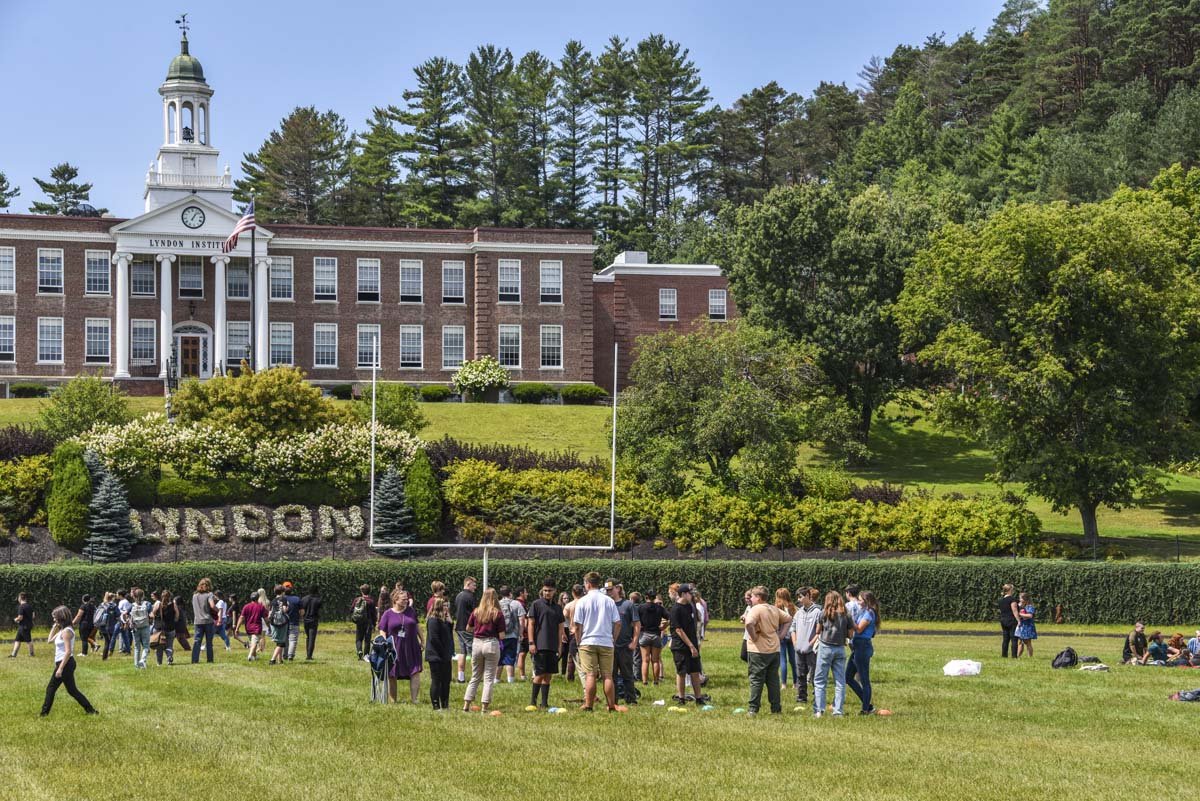- Our School
- Admissions
-
Academics
- Divisions and Faculty
- Commencement 2024
- January Term
- International Program (ESOL)
- College and Career Counseling
- Upward Bound
- Library/Monahan Academic Commons
- Career/Technical Education
- Lyndon Learning Collaborative
- Flexible Lyndon Institute Pathways (FLIP)
- Specialized Instruction
- Adult Continuing Education
- Lyndon Institute Course Catalog
- Student Services
- Arts
- Athletics
- Campus Life
- Support LI
- Alumni

OUR FACULTY
The teachers and administrators of Lyndon Institute believe that learning is a process which continues throughout life, and that formal education should provide a sound basis for later development. We recognize that student interest and motivation are vital to educational success and therefore, school should be both a challenging and enjoyable experience for all concerned.
Using standards-based instruction crafted from state, national and institutional standards, we create a shared focus on instruction that helps all students achieve college and career readiness.
Our academic team offers a multi-tiered instructional framework that offers a multitude of resources to address each individual student's’ academic needs. The supports vary in intensity, allowing for timely interventions for each student. Through personalized learning plans, we strive to provide targeted and differentiated instruction at the earliest indication of student need at a level of intensity that is responsive to that need.
Based on carefully selected assessments, dedication to differentiated instruction, quality professional development and genuine collaboration across teachers, specialists, administrators and parents, Lyndon Institute believes that all students can learn and achieve high standards.
ACADEMIC AREAS OF STUDY
Students learn by making connections and they need to make their learning more relevant. The best way we can assist our students is to work on connecting our departments in our academics. As a result, LI has linked academic departments into academic areas of study combining key departments to increase collaboration, shared practices, and interdisciplinary connections.
The academic areas are:
- Humanities: English and Social Studies
- STEM: Science, Technology, Engineering, and Mathematics
- Languages: World Languages
- Career and Technical Education: Career Sciences and Vocational Pathways
- International Program and English for Speakers of Other Languages (ESOL)
- Fine & Performing Arts: Fine and graphic arts, theater, instrumental and vocal music, and dance
ACADEMIC DIVISIONS
Humanities Philosophy
The humanities can be described as the study of how people process and document the human experience. Since humans have been able, we have used philosophy, literature, religion, art, music, history, and language to understand and record our world. These modes of expression have become some of the subjects that traditionally fall under the humanities umbrella. The craft and content of these disciplines offer students the opportunity to both make and appreciate connections to the world around them that will deepen their understanding of the world and their place in it. By developing the interpretative and expressive skills critical to these disciplines, students can gain a more complex and richer view of what it means to be alive.
World Languages Philosophy
The World Languages Division prepares students for world readiness. We believe that language is at the heart of the human experience. We want our students to have all the tools they need to fully engage in that experience. With its focus on the five competencies identified in the national standards for language learning our program readies our students for participation in a global society. In our program, students focus on communication and the ability to express themselves and share ideas authentically in a second language. They focus on culture and the ability to understand and appreciate the richness of cultures other than their own. They focus on connections and the ability to tie language learning to other subject areas and create a more diverse perspective for understanding the world around them. They also focus on participating and building communities within that language. Finally, our program encourages them to make comparisons of languages and cultures to help them better understand their own place in the world. It is our hope that our students will develop a love of language and culture that keeps them engaged throughout their lives in the diversity the world has to offer.
STEM Philosophy
The Science, Technology, Engineering, and Mathematics (STEM) faculty is committed to engaging all students in rigorous and relevant inquiry, discovery, and problem-solving. We strive to prepare our students for college, careers, and life in an increasingly technological and quantitative world by producing graduates who ask questions about the world and investigate patterns and connections, who identify compelling problems and discover/design effective solutions, who use technology skillfully and strategically, and who reason and communicate precisely in a variety of contexts.
Career and Technical Education Philosophy
Lyndon Institute’s Career and Technical Education Division is dedicated to providing students the skills necessary to pursue a career in a field of interest. We ensure that students gain the skills, technical knowledge, academic foundation and real-world experience they need to prepare for high-skill, high-wage, high-demand careers. We strive to help students discover their interests and passions, empowering them to choose the educational pathway that can lead to success in high school, college, and their chosen career.
International Program Philosophy
Throughout its history Lyndon Institute has served international students from many different countries. Our mission is to prepare our non-native English speaking students to succeed in both academic and social settings using English. We are committed to meeting the academic and social needs of each student through an individualized, rigorous, comprehensive immersion program of English classes that focus on the student’s language proficiency. The program centers on building reading, writing, speaking, and listening skills while developing vocabulary and grammar. Our complete curriculum readies our non-native speakers for taking the TOEFL exam, for success in our academic curriculum, and for the rigors of studying English at the university level.
Fine and Performing Arts Philosophy
The Fine and Performing Arts faculty firmly believe that “art is a unifying language.” Through serious application, relevant experiences, and professional guidance, students learn self-discipline and freedom of expression simultaneously, current and best educational practice in each of the arts (fine and performing), as well as excellent preparation for college and or a professional career.
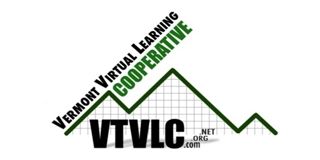
Lyndon Institute is a member of the Vermont Virtual Learning Cooperative. The Vermont Virtual Learning Cooperative works with Vermont schools to facilitate online courses for students statewide. All courses offered by VTVLC online are accessible from anywhere, anytime. For more information, visit www.vtvlc.org.













